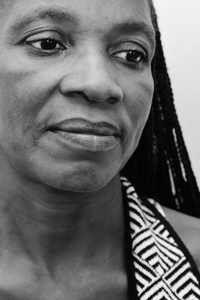Latest News Archive
Please select Category, Year, and then Month to display items
02 January 2025
|
Story Edzani Nephalela
|
Photo Lethabo Machabaphala
 From the left are, Prof John Klaasen, Dean of the Faculty of Theology and Religion; Prof Vasu Reddy, Deputy Vice-Chancellor: Research and Internationalisation at the UFS; Prof Anthea Rhoda, acting Vice-Chancellor and Principal of the UFS; Prof Allan Boesak; Prof Nico Koopman, Deputy Vice-Chancellor: Social Impact, Transformation and Personnel at Stellenbosch University; and Dr Eugene Fortein, Senior Lecturer: Historical and Constructive Theology at Prof Boesak’s book launch.
From the left are, Prof John Klaasen, Dean of the Faculty of Theology and Religion; Prof Vasu Reddy, Deputy Vice-Chancellor: Research and Internationalisation at the UFS; Prof Anthea Rhoda, acting Vice-Chancellor and Principal of the UFS; Prof Allan Boesak; Prof Nico Koopman, Deputy Vice-Chancellor: Social Impact, Transformation and Personnel at Stellenbosch University; and Dr Eugene Fortein, Senior Lecturer: Historical and Constructive Theology at Prof Boesak’s book launch.
In a world increasingly defined by the stark contrasts of power and vulnerability, the concept of democracy often reveals itself as a double-edged sword. For the children of struggle – those who have grown up amid the chaos of inequality and conflict – democracy can feel like a distant promise, an ideal often outmanned by the realities they face. The deception of hope lingers in the air as aspirations clash with systemic barriers, leaving many to navigate a landscape where a harsh daily existence obscures the principles of freedom and justice. This exploration seeks to uncover the intricate dynamics between hope and disillusionment, shedding light on the lived experiences of those who yearn for a brighter future yet grapple with the weight of unfulfilled promises.
This was the essence of the public lecture titled Outmanned by Democracy: Children of Struggle, Deception, and Hope, presented by Prof Allan Boesak, a theologian and political activist, on the Bloemfontein Campus.
Prof Boesak confronted the continuous socio-economic challenges faced by South Africa and other nations, including racism, narrow ethnic nationalism, and the revival of tribalism. He emphasised the role of churches in tackling these issues. “The responsibility of churches is to articulate what politicians are often afraid to say,” he stated. “Put your ideologies into practice and leverage your power as ministers of the Word to shape the future and reclaim the dignity of your people. This is where unity transcends colour and stature. Consider the various roles that churches could play in reconciling communities, as seen in the Gaza crisis.”
During his visit to the UFS Faculty of Theology and Religion, Prof Boesak also launched a four-volume set titled The Fire, The River and the Scorched Earth: Fifty Years of Black Theology Through the Lens of Allan Boesak. The first three volumes include his lectures and responses from various theologians, while the fourth contains his sermons. This body of work aims to document, critique, and celebrate the contributions of black theology, highlighting its role in the struggle for justice and liberation and underscoring Prof Boesak’s unwavering commitment to freedom, liberation, and democracy.
In a time when hope and disillusionment coexist, Prof Boesak’s insights remind us of the transformative power of faith and activism in the continuing fight for a more equitable world
Mekondjo! National exhibition to reveal the courage, determination, repression and torture of PLAN
2014-05-21
|

Angelina Angula ex PLAN soldier injured during the 1978 Cassinga attack - photo by John Liebenberg. |
A pioneering exhibition by John Liebenberg and Christo Doherty is about to open on the Bloemfontein Campus. ‘Mekondjo! born in the struggle for Namibia’ gives South Africans their first insight into the lives of the men and women who fought against the SADF in the bush of Northern Namibia and Angola from 1966 – 1989.
This public exhibition presents eleven portraits of People’s Liberation Army veterans in the process of speaking about and coming to terms with their very different experiences in the Namibian War of Liberation.
When the People’s Liberation Army (PLAN) returned to Namibia after the UN-supervised elections of 1989, it had been fighting against South African rule for 23 years. Formed in 1966 as the armed wing of the South West African Peoples’ Organisation, PLAN had developed from a handful of poorly armed guerrillas to a sophisticated mechanised force. These soldiers fought alongside Angolan, Russian and Cuban soldiers against the SADF and UNITA. Since SWAPO’s election victory, the new government has mythologised the heroism of the armed struggle. The stories of the individual PLAN fighters’ experiences are only now being articulated, though.
Their stories are of great courage and determination against often impossible odds; but also of repression, torture, and disastrous decisions by the PLAN leadership.
The exhibition will be on display from Thursday 22 May to Friday 23 May for the duration of the Silence after Violence conference. The conference is hosted by the UFS Institute for Reconciliation and Social Justice and the Center for Holocaust Studies at the University of Vermont.
Date: Thursday 22 May and Friday 23 May 2014
Place: Centenary Complex, Reitz Hall, Bloemfontein Campus
Exhibition Introduction: Thursday 22 May, 14:00 – 15:30
Other viewing times: intermissions during the Silence after Violence programme
The public is welcome to attend.
* Spotlight photo: PLAN commissioner Nkrumah Mushelenga, Windhoek 2013 – photo by John Liebenberg